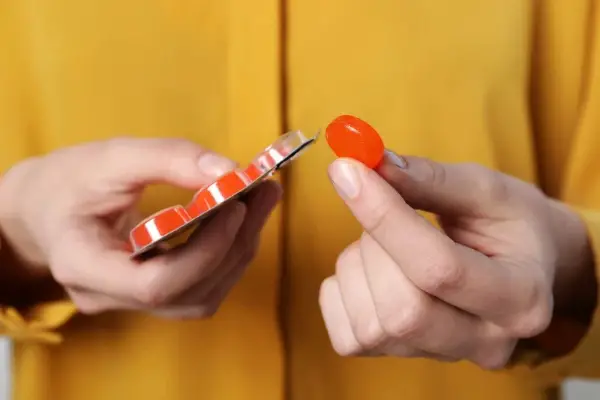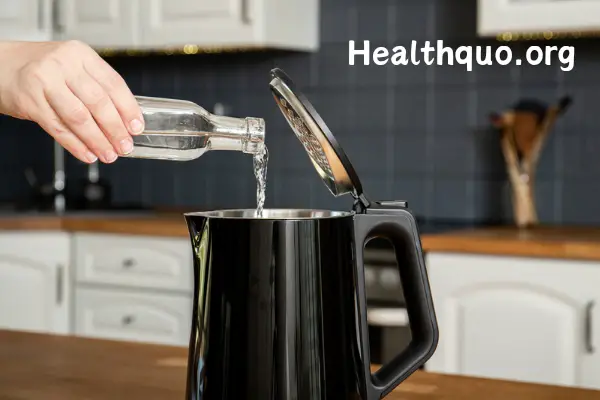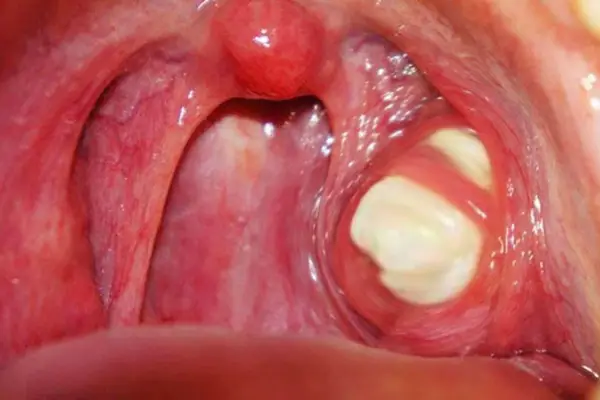Swallowing aluminum foil can raise concerns due to the potential for physical harm rather than chemical toxicity. Aluminum foil, commonly used in cooking and food storage, is made from aluminum, a metal that is relatively unreactive under normal conditions.
When aluminum comes into contact with the hydrochloric acid (HCl) in the stomach, a reaction can occur, producing aluminum chloride and hydrogen gas. However, this reaction is typically slow and incomplete in the digestive environment. Furthermore, the amount of aluminum foil usually ingested accidentally is small, making acute chemical toxicity unlikely.
The primary risks associated with swallowing aluminum foil include physical issues such as choking, gastrointestinal (GI) blockage, or perforation. The risk of choking or GI blockage is higher if a large amount or a tightly balled-up piece of foil is swallowed. GI perforation, though rare, can occur if the edges of the foil are sharp enough to puncture the lining of the GI tract. However, when only a small, smooth piece of foil is ingested, these risks are significantly reduced.
A small piece of swallowed aluminum foil is likely to pass through the digestive system without causing harm. The human GI tract is designed to handle a variety of ingested materials, and small, non-sharp objects often pass through without incident. The foil is unlikely to react chemically in any significant way due to the protective oxide layer on its surface and the slow reaction with stomach acid.
In the case of infants or babies swallowing aluminum foil, the situation can be more concerning due to their smaller airways and digestive tracts. Parents or caregivers should be cautious and consult a pediatrician or seek emergency medical attention if they suspect their child has swallowed aluminum foil, especially if the child shows signs of distress, choking, or discomfort.
If aluminum foil gets stuck in the throat, medical intervention is necessary. Symptoms like difficulty swallowing, pain, or a sensation of something being stuck in the throat should prompt immediate medical attention. An X-ray can help locate the foil, and procedures like laryngoscopy or gastrointestinal endoscopy may be performed to remove it. In some cases, a barium swallow, where the patient ingests a barium solution to enhance X-ray imaging, may be used to assess the situation further.
How Is Swallowed Aluminum Foil Processed By The Gastrointestinal Tract?
Like any other ingested items, the swallowed aluminum foil passes down the esophagus from the mouth. If the foil is small and smooth, it usually travels down without issue. However, larger or sharper pieces can pose a risk of injury or obstruction.
Once in the stomach, the aluminum foil comes into contact with gastric acid. The acid can potentially react with the aluminum, but this reaction is typically minimal due to the slow reaction rate and the brief time most substances spend in the stomach. The acidic environment and the churning action of the stomach may help to somewhat break down or alter the foil’s shape, but significant chemical breakdown is unlikely.
The foil then enters the small intestine, where most digestion and absorption of nutrients occur. Since aluminum foil is not digestible, it does not undergo breakdown here and does not contribute to nutrient absorption. The peristaltic movements of the small intestine help to move the foil along the digestive tract.
In the large intestine, water and salts are absorbed from the material passing through. The foil, being inert and non-digestible, remains largely unchanged and often wrapped in a ball of feces. The large intestine continues to move the foil toward the rectum.
Finally, the aluminum foil is excreted from the body in the stool. This process can take a few hours to a couple of days, depending on the individual’s digestive system and transit time.
Are Food Wrapped In Aluminum Foil Harmful?
Food wrapped in aluminum foil is generally considered safe for cooking and storage. Aluminum foil is widely used in kitchens due to its heat-conducting properties and its ability to effectively wrap and seal food, keeping it fresh. However, there are a few points to consider regarding the safety of using aluminum foil with food.
Some studies suggest that aluminum can leach into food, especially when cooking with acidic or spicy foods, as these can increase the rate of aluminum dissolution. The amount of aluminum that leaches into food is typically small and is generally considered safe by food safety authorities. However, excessive consumption of leached aluminum over a long period may be a concern, particularly for individuals with certain health conditions or those who consume large amounts of aluminum-containing foods.
Aluminum foil is heat resistant and can withstand typical cooking temperatures. However, it should not be used in a microwave, as it can cause sparks and potentially damage the appliance.
While not directly related to health, it’s worth noting that aluminum foil is a finite resource and can have environmental impacts. Using alternatives like glass containers or reusable silicone wraps can be a more sustainable choice.
There has been some discussion about a potential link between aluminum exposure and Alzheimer’s disease. However, current research does not support a definitive connection between the use of aluminum foil in cooking and the development of Alzheimer’s or other neurodegenerative diseases.
What to Do After Ingesting Aluminum Foil?
If the amount of aluminum foil ingested is small and does not present any immediate symptoms, such as choking, abdominal pain, vomiting, or feeling of something trapped in your throat, you’ll likely be fine.
Just keep an eye out for any potential symptoms in the hours and days following the ingestion.
You may want to monitor your stools over the next few days to see if the aluminum foil passes through. This can help confirm that the foil has been excreted without causing internal issues. However, tiny pieces of foil will be hidden inside the fecal mass and therefore, hard to notice.
If you start experiencing any unusual symptoms or if you have any concerns, it’s important to seek medical advice. Contact a healthcare professional to discuss your situation.
Tips To Prevent Aluminum Foil Ingestion
To prevent accidental swallowing of aluminum foil, it’s important to practice safe storage and handling. Keep aluminum foil out of reach of children and pets, as they are more likely to accidentally ingest it.
Store foil in a secure drawer or cabinet. When using aluminum foil for cooking or food storage, ensure all pieces are accounted for and properly disposed of after use.
Avoid leaving small scraps or torn pieces on countertops or within reach. Educate family members, especially children, about the potential risks of ingesting non-food items. Regularly check and dispose of any stray pieces of foil to maintain a safe environment.





